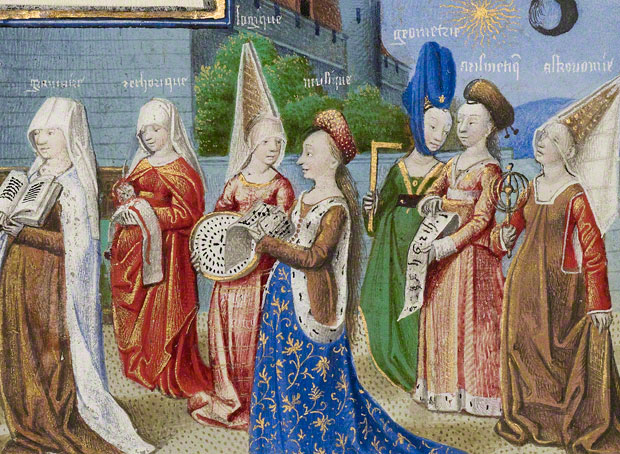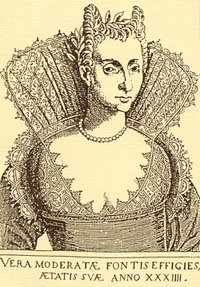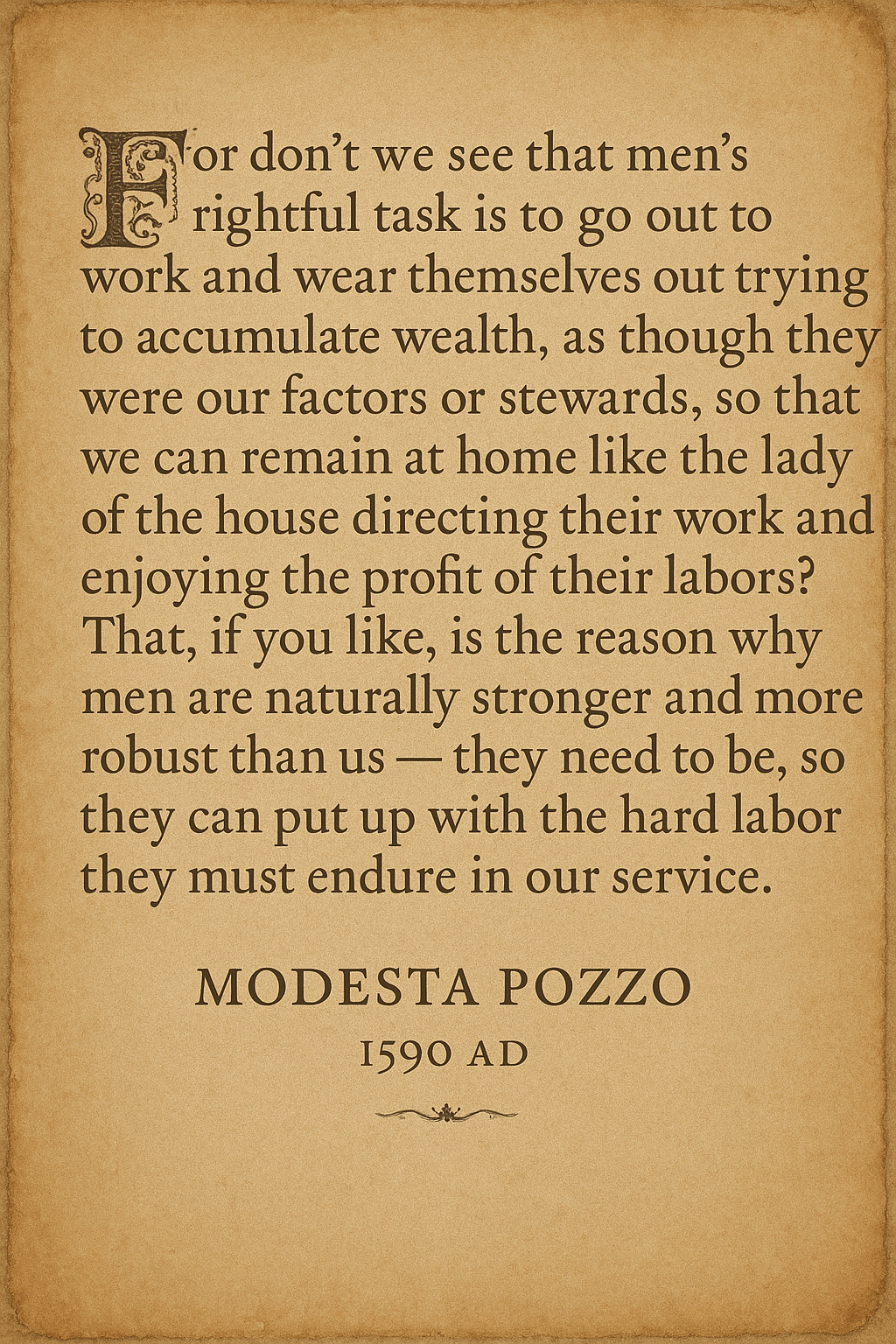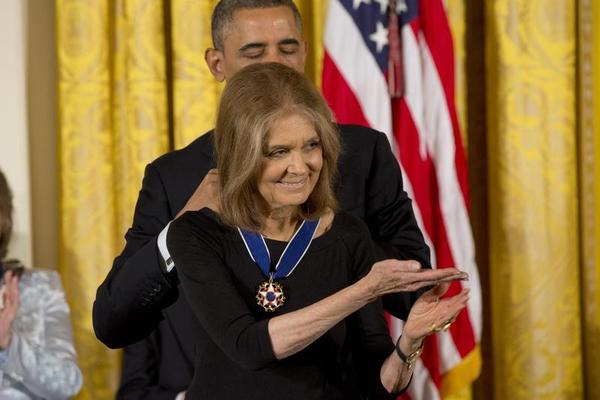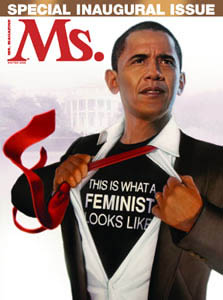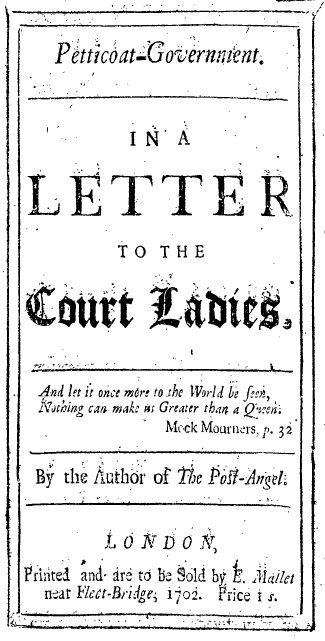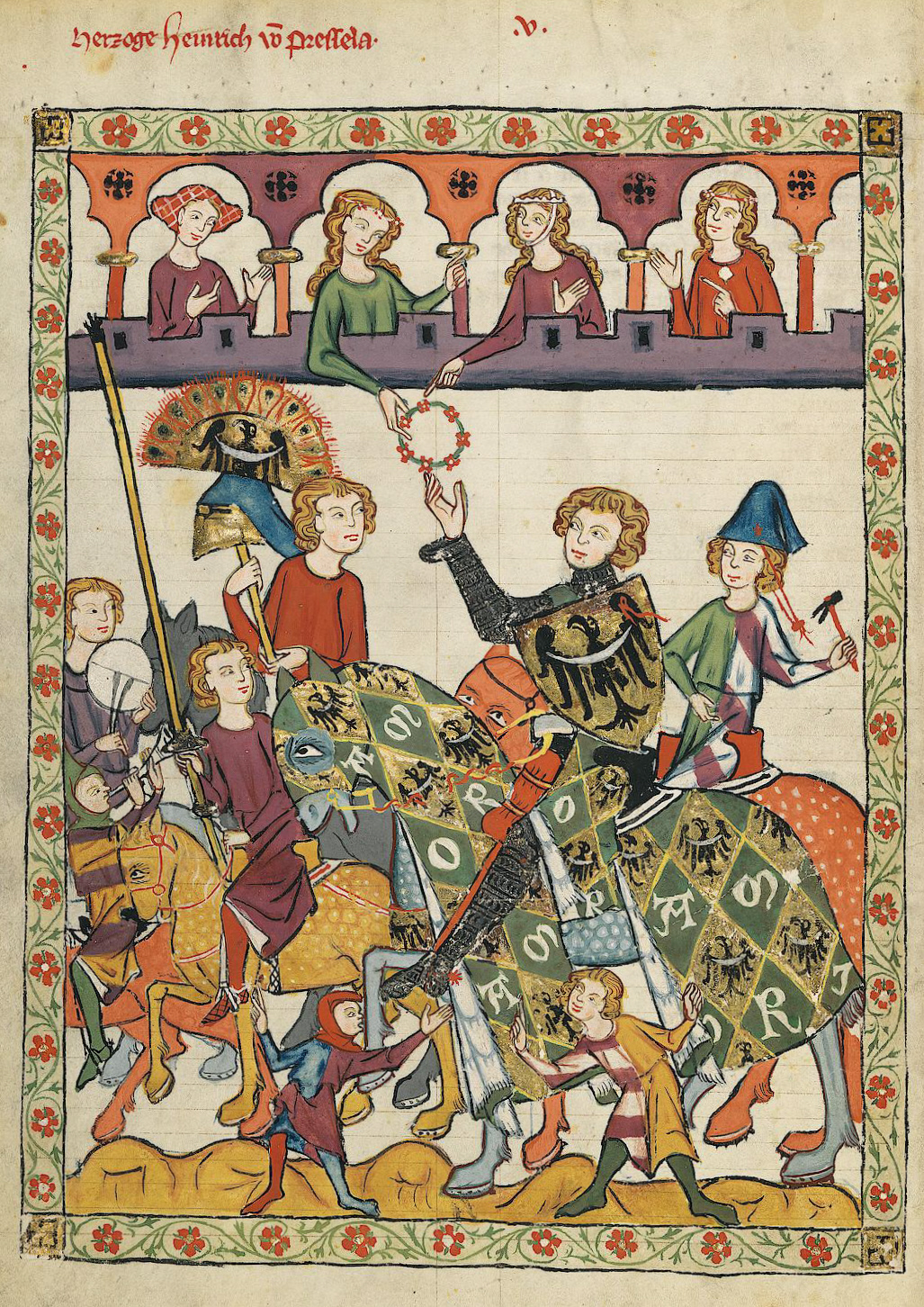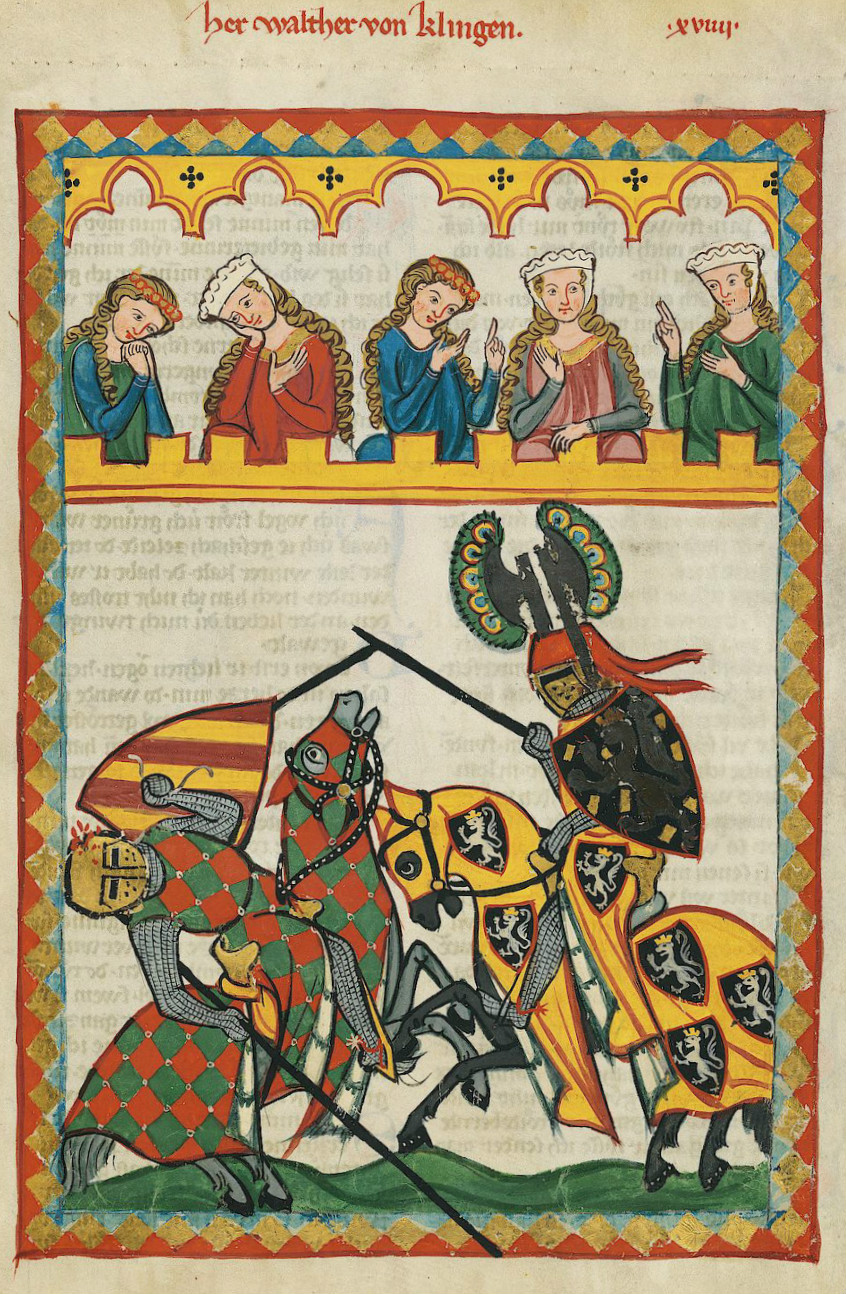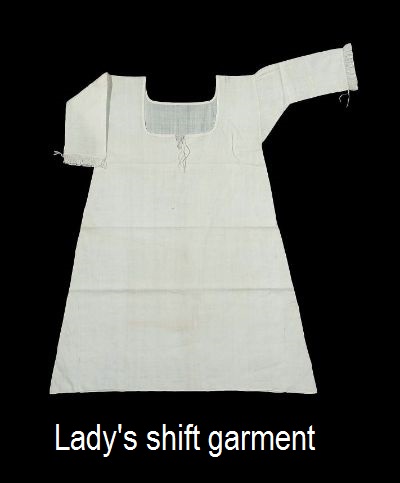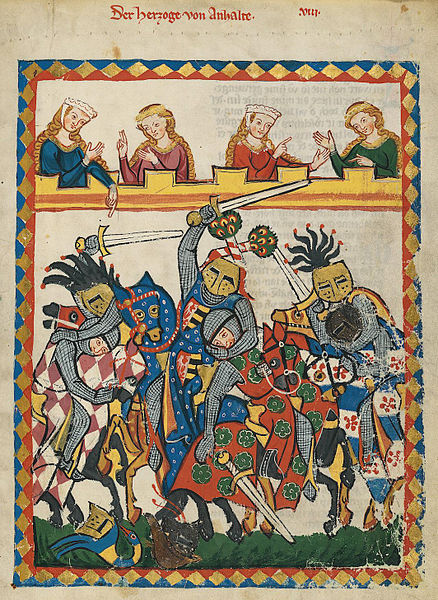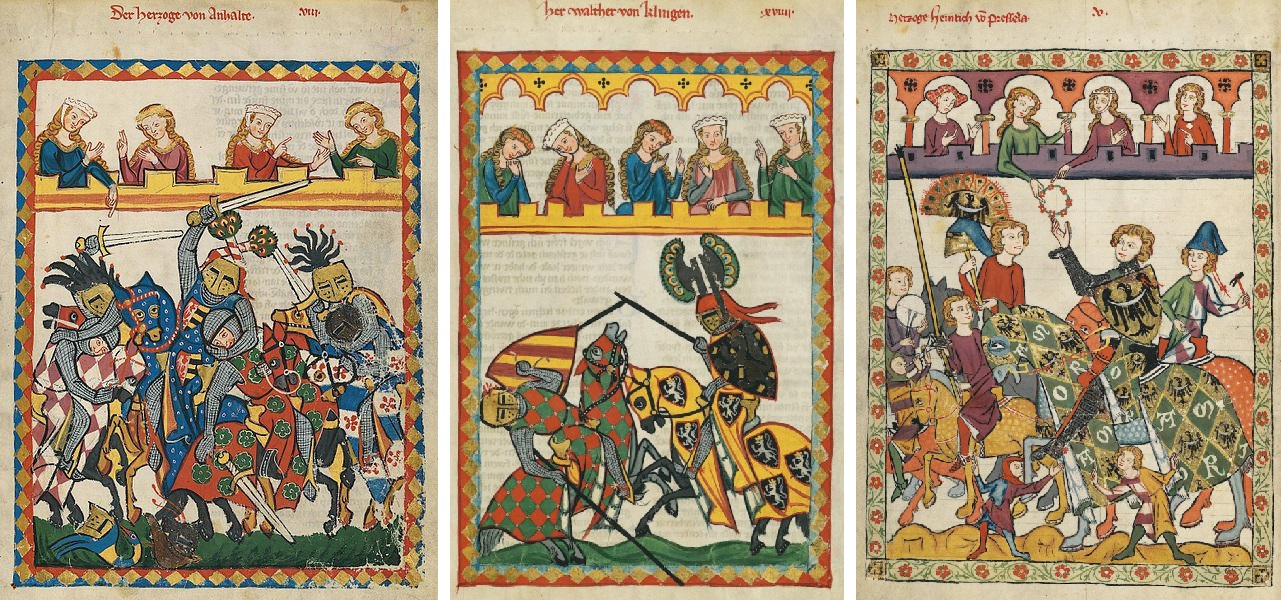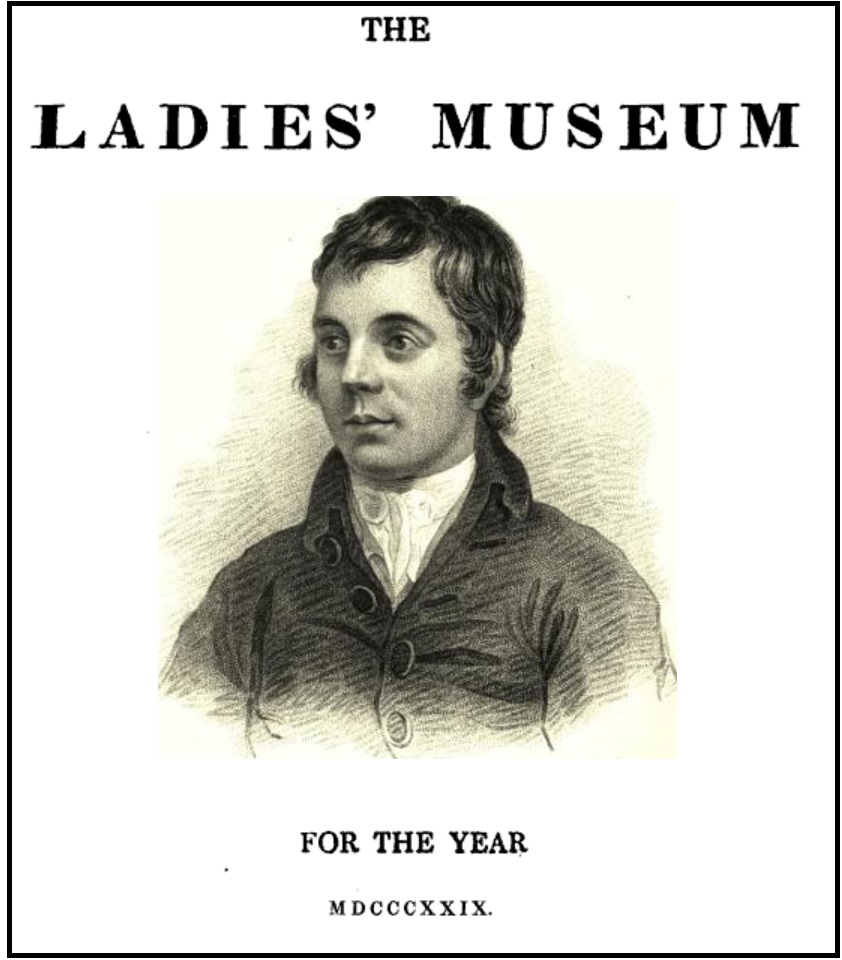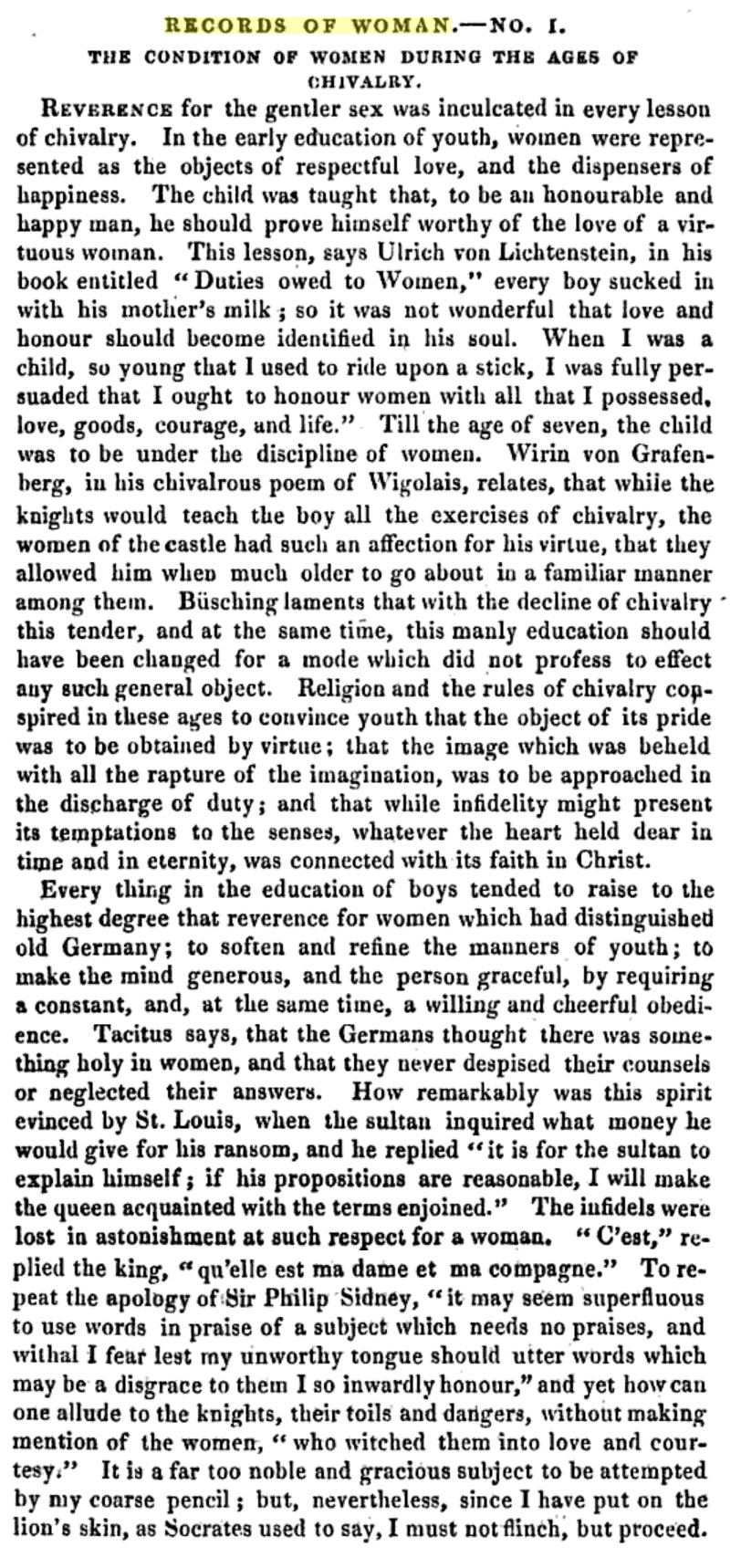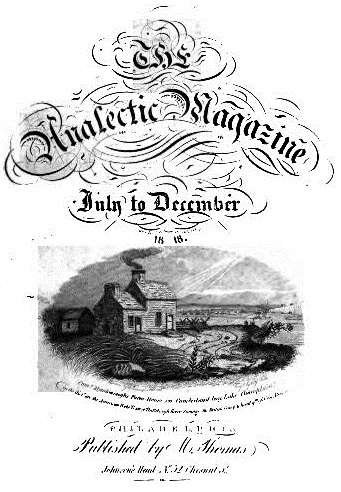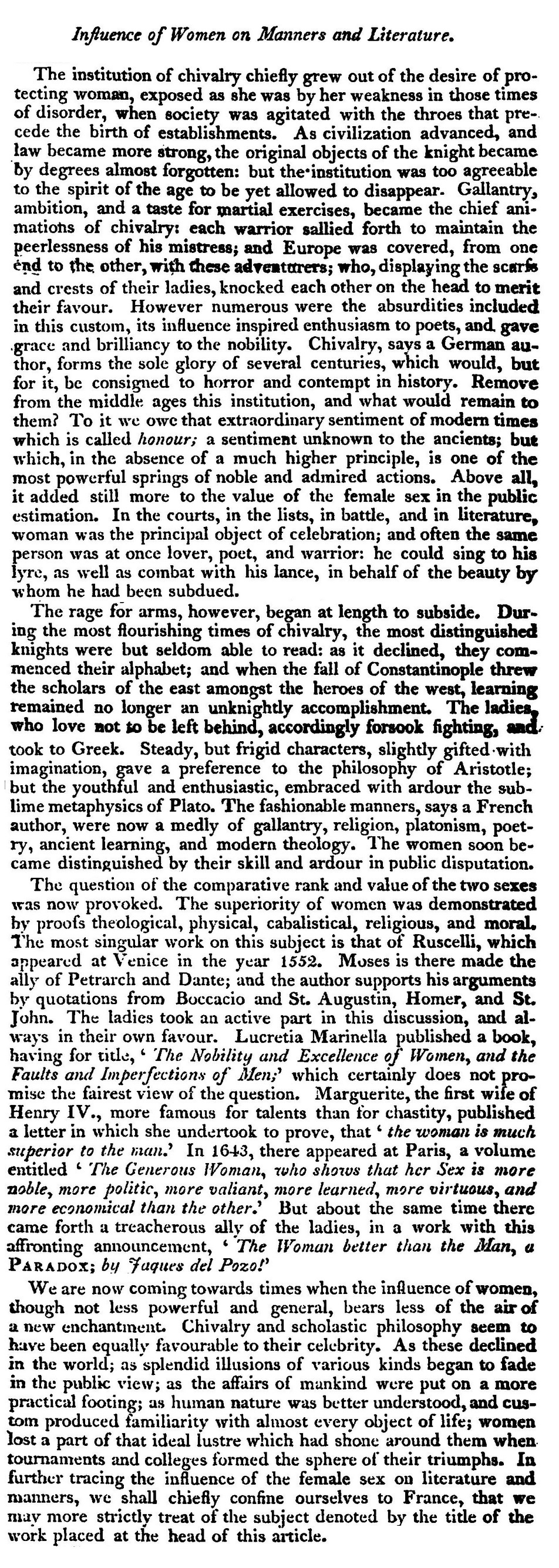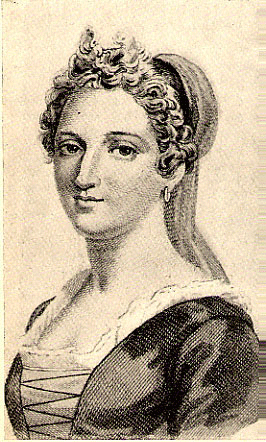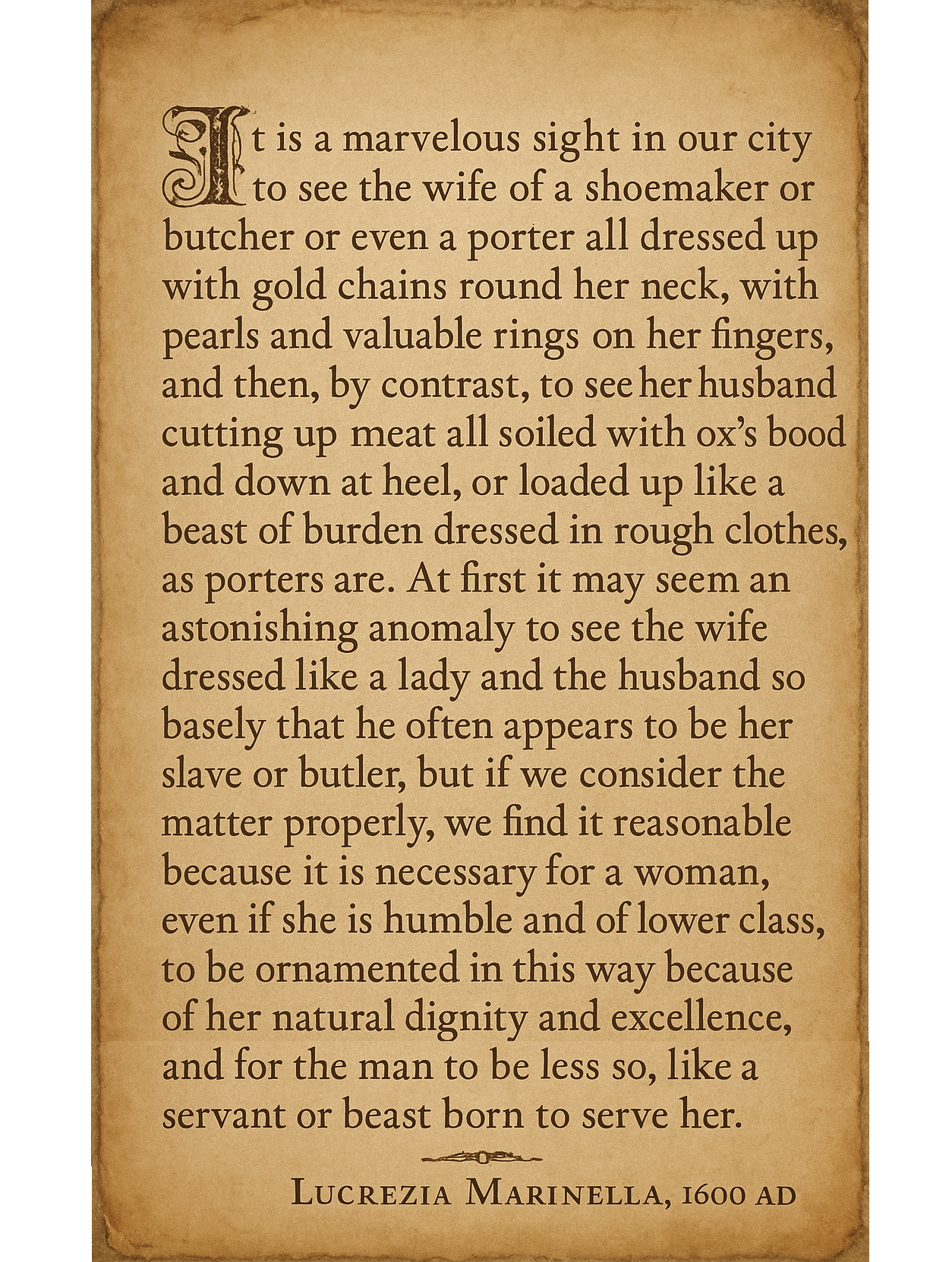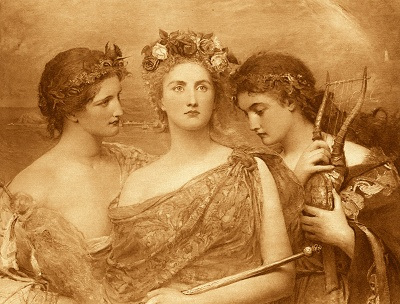
Often all-female worlds are imagined as Utopias. The details of the Utopia vary, but the idea that a world without men would be a Utopia recurs again and again in literature throughout the centuries. Neither is the idea entirely fiction, as we see from modern examples where feminists literally call for the extermination of part or all of the male population; a fantasy that does not occur in the reverse.[1][2]
In the decades before World War II, gynotopias tended towards the Utopian. In the 50’s, the “Love-Starved Amazons In Outer Space” genre was created. The 60’s and 70’s spawned two new, closely related gynotopian genres. One was a feminist utopian school, different from the older utopian novels in its bitterness towards men. The other might be termed “backlash fiction”; written by men, these novels featured monstrous Amazons ruthlessly murdering men by the bushel. In many of these stories of both camps, a plague or war lowers the number of males and a handful of highly intelligent, strong-willed women decide to seize power for themselves, and they know they have to make sure there are few or no males if they want to hold on to it.
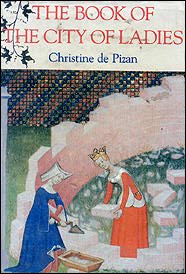
The Book of The City of Ladies by Christine de Pizan.
Aside from classical myths describing tribes of Amazons, the first serious attempt at dreaming up a gynotopic society comes from protofeminist Christine de Pizan in the Middle Ages (c.1405). The storyline proposes that a city be constructed entirely by women – one that will be ruled entirely by women, every one of whom is virtuous, chaste and pure. Christine inserts herself into the story as its most suitable ruler, as she is the wisest, and most chaste and pure of all women. Christine’s city presents and shelters women as goddesses. Like Pygmalion, who was uninterested in real women, she sculpts the perfect female so that men can worship the illusion. In this sense Christine was very much a traditionalist attempting to uphold and entrench all the privileges enjoyed by her gender since chivalric love had been introduced. For a longer essay discussing this author and her book see Christine de Pizan: the first gender warrior.
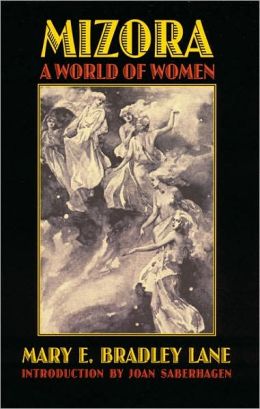
Mizora: a World of Women by Mary E. Bradley Lane
Mizora, published in 1880 is an all-female Utopian novel full of murderous ideologies hauntingly remniscent of Nazism. In this Utopia a disinterest in sex is maintained, but the women wear beautiful and elaborate clothes. Instead of agrarian subsistence, Mizora is technologically highly advanced; they synthesize most of their food from minerals, have cured most diseases, have flying machines, and their parthenogenesis takes place in a laboratory. Their planned economy, unlike every planned economy in real life, has created great prosperity for all. Everybody is blonde and blue-eyed. The Nazis did not invent their “master race” theory all by themselves; in the late 19th and early 20th centuries, not only did many people take the pseudoscience of eugenics seriously, but there was a widely held theory that blue-eyed blonds were the highest type of human. The theory is discussed in depth in Joanna Pitman’s fascinating book On Blondes.
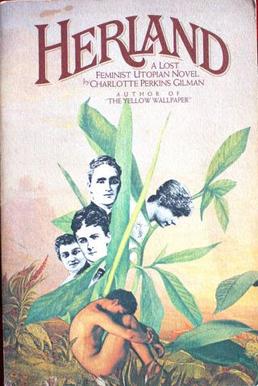
Herland by Charlotte Perkins Gilman
Herland is a utopian novel from 1915, written by feminist Charlotte Perkins Gilman. The book describes an isolated society composed entirely of women, who reproduce via parthenogenesis (asexual reproduction). The result is an ideal social order: free of war, conflict, and domination, with most the male population originally killed by “natural” forces, and any remaining intruder males held captive in a fortress-like building
Bees in Paradise by Marriott Edgar
In this early (1944) and more lighthearted example of this genre Arthur Tucker and a few other men are shipwrecked on an island whose sole visible population is beautiful young women. (Like Wonder Woman’s home, it is called Paradise Island.) Men apparently exist, though we never see any of them; all the important work is done by women, who rule this society completely. However, their birth rate is dangerously low, and to their bafflement they are unable to induce men to marry them – which, since the movie was made in 1944, is the only way they can get pregnant. It does not occur to them that their policy of executing all husbands two months after the wedding might have something to do with it.

The Day of the Women by Pamela Kettle
The back cover of this British pulp novel really says it better than I possibly could:
A female Prime Minister… human stud farms run by women… mass rallies at Buckingham Palace to celebrate the day of the dominating women… all this and more in a take-over bid of the Seventies that turns to high-heeled fascism, a dictatorship of unbridled power lust. A female elite has taken over England. Led by their ‘mother’, the sleek Diana Druce, they perform an economic miracle – and put the jackboot through the idea that women are the weaker sex. Author Pamela Kettle paints, in mercilessly naked detail, a picture of the near future that is not only possible, but probable…

The Sex War by Sam Merwin, Jr.; also available via Kindle as The White Widows
Merlin’s 1953 science fiction novel in which a chemist researching hemophilia becomes a pawn for ‘The White Widows, ‘ a group of women who intend to take over the world — and eliminate all men!
This one is about a conspiracy of genetically superior women who want to take over the world and, once they have the technology to reproduce without them, do away with men entirely. Notice the blood on the lower abdomen of the man in the background. I don’t recall any castration in the novel, but the cover’s implication is pretty darn clear.
Elseworlds: Created Equal
 In this graphic novel, all the men in the DC universe die of a plague… except for Superman and Lex Luthor. The author apparently couldn’t figure out whether to be male chauvinist or female chauvinist. This is a sterling example of how many interesting psychological complexes bubble up as soon as people start writing about gynotopias. Futuristic all-female world in which one male is made as an experiment. This falls into the category of satire against radical feminism. Without men, the world becomes a stagnant dictatorship, although in this novel, the dictatorship functions reasonably even if it is dull, unlike in real life, where dictatorships are full of unrest and don’t tend to last long. In this graphic novel, all the men in the DC universe die of a plague… except for Superman and Lex Luthor. The author apparently couldn’t figure out whether to be male chauvinist or female chauvinist. This is a sterling example of how many interesting psychological complexes bubble up as soon as people start writing about gynotopias. Futuristic all-female world in which one male is made as an experiment. This falls into the category of satire against radical feminism. Without men, the world becomes a stagnant dictatorship, although in this novel, the dictatorship functions reasonably even if it is dull, unlike in real life, where dictatorships are full of unrest and don’t tend to last long.
“Well, who wants men, anyway?” she said with an attempt at nonchalance that didn’t quite come off. Crinila smiled in the darkness. “Why, nobody, Lycia darling. Not even the men themselves will want men. All they will ever want is women.”
The Holdfast Chronicles by Suzy McKee Charnas
The gynotopian “female planet” has also been shown up as everything from well-meant nonsense to hateful rage, and Miss Charnas’s series is no exception. She claims not to hate men, but when you read her fictional history of how those nasty men destroyed the earth, killed off most of our species in massive wars, and then enslaved all women, even contemplating raising women for food, it’s kind of hard to believe her. (Incidentally, Miss Charnas vehemently opposes the current wars in the Middle East that have unseated dictatorships which treat women almost this badly, and of course similarly opposes Western civilization, in which women have been better treated than in any other society in history.)
Facing dwindling reproduction, the men devised a procedure by which genetically altered women could be fertilized by horse sperm. Aside from the scientific improbability, I found this rather interesting, since according to Greek legend, horses were extremely important to Amazons – many Amazon names incorporate the Greek word for “horse” – and there were predictable jokes and speculation that their horses took the place of men in, ah, various ways. I don’t know if the parallel is deliberate. In any case, able to reproduce without men (because of technological advances made by men), these women escaped and became roving Amazons. This leads to the most worthwhile book in the series, The Furies, which Miss Charnas says upset many readers who were hoping for a more conventional feminist fantasy about how everything turns into fluffy bunnies without any of those big bad men around. Instead these Riding Women become just as brutal to men as men had been to them. This makes The Furies the most realistic novel out of the series; an hour of reading child abuse case histories will eradicate any notion that women are not capable of being violent or cruel.
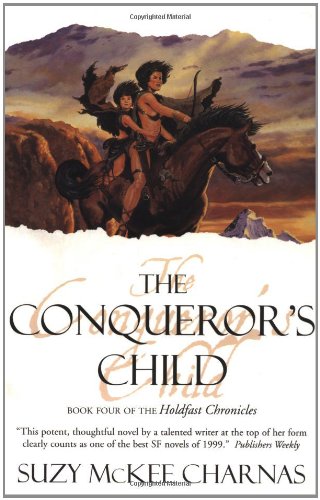
The final novel, The Conqueror’s Child, centers on the daughter of a hero of the Riding Women – a daughter who she abandoned as soon as she was born, following the model of real-life feminists. The story is about how the matriarchy finally wipes out the patriarchy for good, and how some women were magnanimous enough to allow some men to live. Miss Charnas claims to envision a society where the sexes are genuinely equal and both have all human options open to them, but her own story belies this: “The sponsorship of men and boys is a way of providing them with what amounts to a family of sharemothers, who show them how decent people behave and require that they themselves do so,” Miss Charnas burbles happily, describing this as “an alternative to enslaving the men or keeping them permanently on the stick”. We are asked to believe, in defiance of all of human history, that the men submit to this. I do not have the space here to dispute Miss Charnas’s definition of “decent behavior”, but I will point out that apparently killing or enslaving men is not excluded from it. But we can hardly expect the author to have a realistic view of human nature when we see in what denial she is about animals: “Any fool can see what makes a reasonable society by looking at who rules a band of horses or a flock of goats.” Please pause for a moment to digest that sentence. She is asking us to take four-legged grass-eating animals as a model for government. I think “fool” is the right word here. She continues, “Despite noisy male pantomime of mastery, the chief invariably turns out to be the queen doe or the lead mare, not the randy, hysterical buck or the stallion with the arched neck and rolling eyes.” Gracious, she does hate the menfolk, doesn’t she? Well, I have never studied horses, goats or deer, but I have invested considerable time into studying our close relatives the apes, and male dominance is universal among them.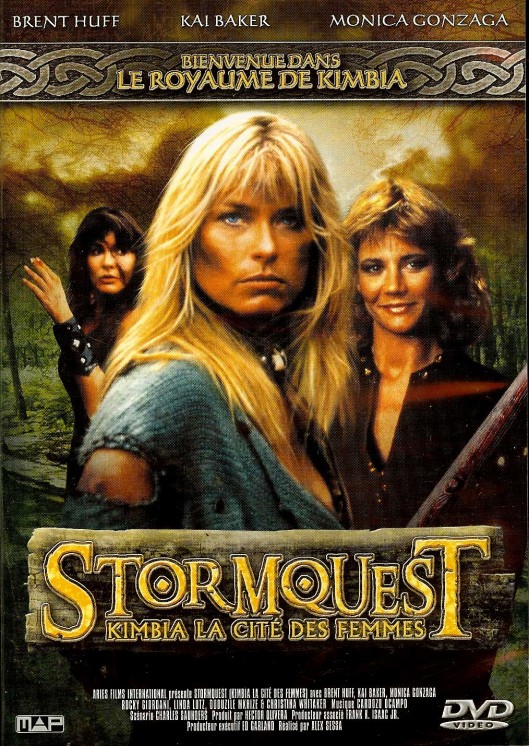
Stormquest is a 1987 sword-and-sandals B movie. The nations of Kimbia, which has no men, and Ishtan, which keeps men as slaves, are at war. Add to the mix Ishtan men who are rebelling to demand equality with women and Kimbian women who were condemned for liking the men they bred with. The treatment of men by Ishtans is quite appalling, though to be fair the Ishtan queen is almost as cruel to her female subjects as her male slaves. In a female-ruled society where men are kept solely for breeding, two women come to believe that their society’s treatment of men is wrong, and lead them in a revolt against the system.
Whoever made this movie seems to have had some pretty big Issues. Not on DVD, but the entire movie can be viewed in segments on a certain free video site.
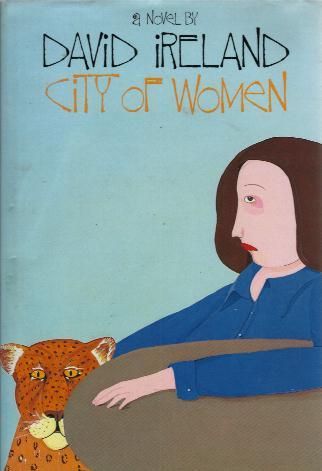
In City of Women by David Ireland, men have been banished from Sydney, Australia, but still run amok outside the city.
Dustjacket synopsis:
“The city of women is love, Billie Shockley says.
“But in the city of women that is her world, love takes strange forms.
“The city is Sydney, from its familiar streets and gardens men have been banished. Their existence still threatens its precincts and Old Man Death moves rapaciously and relentlessly among its citizens.
“Billie observes them – their hedonism, rivalry, passions, cruelty, power, fragility. Reflecting her own anguish at the loss of love and youth, they suffer brutality and decay.
“But, she tells her gentle leopard, she will never admit it’s all over.
“City of Women is David Ireland’s most recent novel. It follows his highly acclaimed A Woman of the Future, which in 1979 won for him, for the third time, Australia’s most prestigious literary prize, the Miles Franklin Award, shared the Age Book of the Year Award for 1980, and has become a best-seller.
 “Gender Genocide” also published as Who Needs Men? by Edmund Cooper “Gender Genocide” also published as Who Needs Men? by Edmund Cooper
A masterpiece of sexism. Fascist Lesbian Amazons have wiped out almost all of the men on earth and are working on the few remaining. The Amazons reproduce by cloning. The heroine, Rura Alexandra, is a First-Class Exterminator of men… until she meets one, is raped by him, falls deeply in love with him, gets pregnant and follows her man to the ends of the earth.
“Rura spent her days learning to forget that she had ever been an exterminator, learning to become a woman. It was an exciting process. It was as if she were peeling away a superficial persona and discovering something quite different underneath…. She learned to sing the old songs that Diarmid loved, to do the things that would please him; she learned when to be passive and when to take the initiative, and how to respond to excite him. She began to feel proud of her swollen breasts and swollen belly. These were the outward and visible signs of the true nature of womanhood.”
You know, I’m all in favor of heterosexuality (when it’s practiced by heterosexuals, that is), but the above inspires me to date myself by reviving a phrase of my adolescence: “Gag me with a spoon.”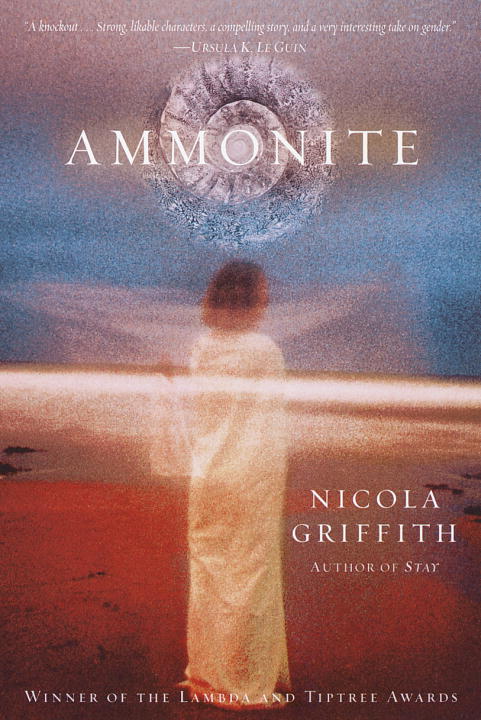
Ammonite by Nicola Griffith
“In Ammonite… the attempts to colonize the planet Jeep have uncovered a selective virus that kills all men and all but a few women. The remaining women undergo changes that enable them to communicate with one another and the planet itself, and give to birth to healthy, genetically diverse children.”
Retreat: As It Was by Donna J. Young
This novel is set in the distant past when there were no men, just women who lived in peace and harmony. They all fly around in spaceships being sisterly (and occasionally more) and understanding of each other, mystically in tune with nature and growing spiritually and all that stuff. Then a radiation mutation causes: “You and all the women on the Eulalia suffered a slight change in one chromosome. One tiny leg of an X was chopped off. The effect on Jarre and all their offspring…” well, you get the idea. They mutated into men, and that was when all the trouble began. If you believe that the world would become a paradise if there were no Y chromosomes in it, this book is for you.
Wanderground by Sally Miller Gearheart
You know it’s going to be a bad book when you flip through it and find made-up words like “earthtouch”. These women live in “the Hills”, that is, out in the wilderness, where they talk to trees, live in perfect peace with each other and are far more in touch with their feelings than anybody ought to be. Not far away a normal (that is, with men and women) society lives in a place called “the City”. Naturally the City is a horrible place full of technology and competition where nobody talks to trees. In the very first chapter the author tells us that men are just too full of hate and violence to be fit to live and just need to die out, which these compassionate, in-touch-with-nature kindly and compassionately watch them do. 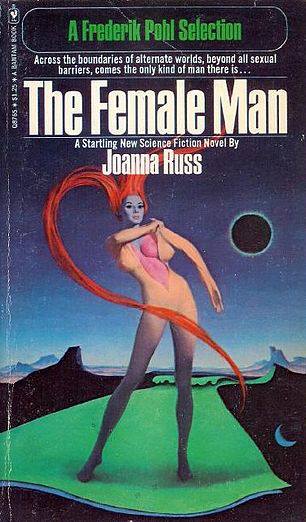
The Female Man by Joanna Russ
The virulent hatred of men exhibited by feminists who boast endlessly about how compassionate and nurturing they are is the most tiresome thing about feminist-Utopian gynotopias. This badly written and ideologically asinine novel has for some mysterious reason garnered wide acclaim. Among the author’s embittered potshots at the male gender are a scene in which a man (a Marine, of course) consults a book called WHAT TO DO IN EVERY SITUATION when a woman rejects his advances and follows its instructions: insult her and “Girl backs down – cries – manhood vindicated.” Gee, real subtle there.
When It Changed by Joanna Russ
Science fiction story. Centuries ago, a plague killed all the male members of a space colony. Since then, women have carried on, living in Lesbian relationships and reproducing by egg fusion. They’re doing fine until an Earth ship full of males lands. Naturally the nasty males have caused Earth to have nuclear war and all those other bad things that Whileaway doesn’t have, and the patronizing men compulsively assure the women that “sexual equality has been re-established on Earth”. Written by a Lesbian-feminist, it’s male chauvinist in a kind of backhanded way; though the women of Whileaway hunt big game and fight duels and are generally quite capable of looking out for themselves, all the tall, strong, confident men have to do is swagger in and the women of Whileaway instantly feel themselves intimidated and outclassed.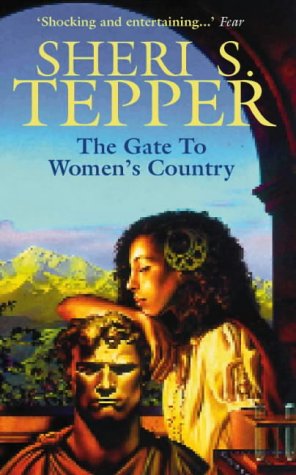
The Gate To Women’s Country by Sheri S. Tepper
This is a space colony that has lost contact with Earth in which men and women live separately. The women have cooperation and harmony and nurturing while the men are mean old Warriors, though there’s not actually anyone else to fight with. Little boys are sent to live with the warriors at the age of five, where the men corrupt them into being horrible violent monsters, which would never happen if they stayed with their mothers. The main characters also spend some time with another society which practices a religion which is an obvious cypher for Christianity. It’s equally obvious that the author hates Christianity; the occupants of Holyland, who worship the All-Father, are ignorant and dirty and constantly beat their women and are terrified of the thought of anybody enjoying sex. Oddly enough, no matter how often the enemies of Christianity promote this image of them, real-life Christians stubbornly refuse to start acting the way they are assured they do.

Consider Her Ways by John Wyndham, a famous science fiction story. Was made into a Night Gallery episode.
A young woman wakes up in a future three generations after the men have been wiped out by a plague. There are four classes of women: Mothers, who bear children, Servitors who do menial work, Workers for hard labor, and the ruling class, the Doctorate, so called because it is dominated by the doctors, without whom reproduction is impossible. Men have been forgotten except by a few scholars. A historian tells the protagonist, “It was quite a dreadful state of affairs because although there were a great many women, and they had outnumbered the men, in fact, they had only really been important as consumers and spenders of money. So when the crisis came it turned out that scarcely any of them knew how to do any of the important things because they had nearly all been owned by men, and had to lead their lives as pets and parasites.” She continues with standard feminist rhetoric, very prescient for a story written in 1956, despite the protagonist’s desperate attempts to explain the joys of the man-woman relationship. In essence, this story is the feminist fantasy: the intellectual career-oriented women are able to seize power, do away with men, and relegate more traditional women to a subordinate role without its doing men any good because there aren’t any.
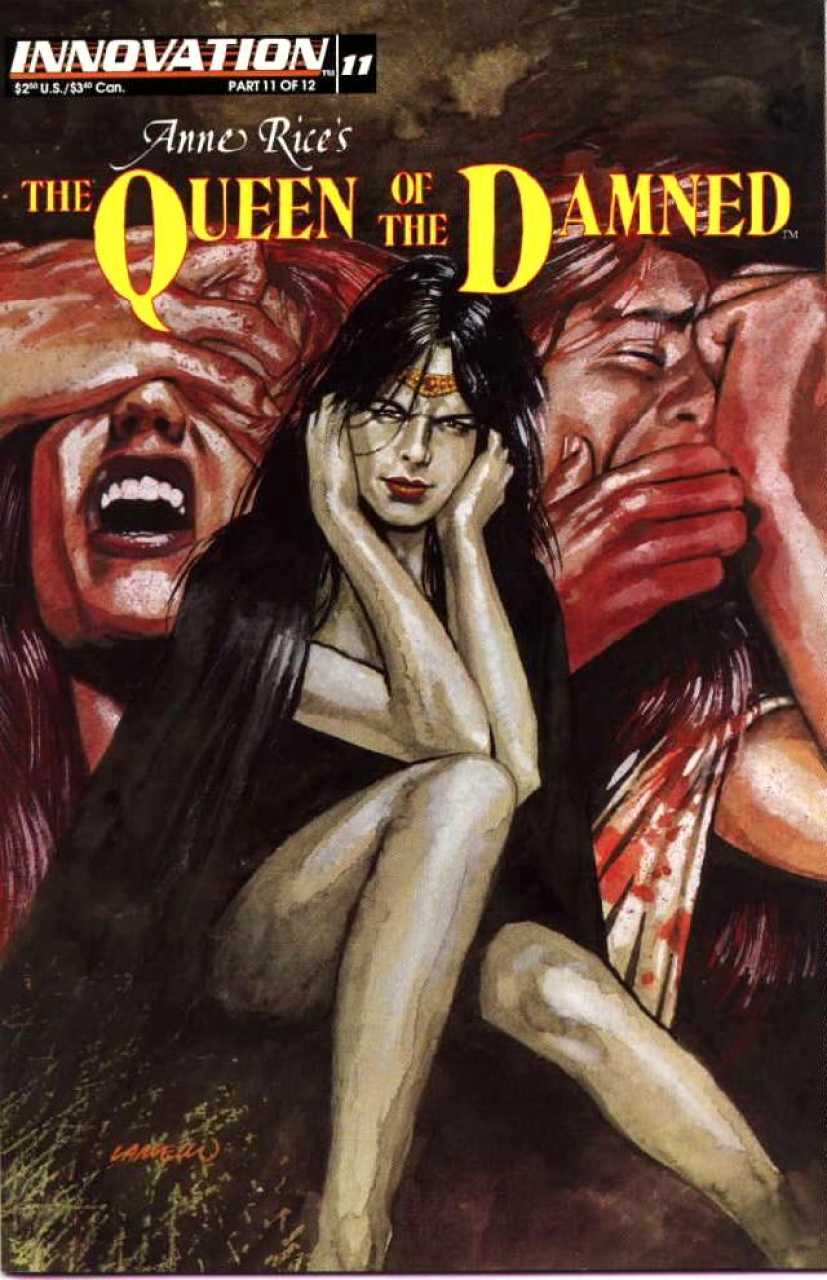
?A late addition to this genre is The Queen of the Damned by Anne Rice. The first vampire, Akasha, decides to end war and crime once and for all by eliminating the source: men. After she inspires women and other vampires to kill all the world’s males, except for a few for procreation, she is confident that the world will become Eden. Nor is the genre dead today. In 1982, Sally Miller Gearhart wrote an essay titled “The Future – If There Is One – Is Female” in which she demanded that in future, men be limited to ten percent of the population. In 1999, Mary Daly envisioned a utopian future of parthenogenetically reproducing women and no men in Quintessence. In 2004, Bryan Sykes wrote Adam’s Curse: A Future Without Men, he suggested that in the not too distant future, men may be biologically superfluous, and that this will be just as well given how awful men are. In 2008 A. N. Wilson speculated that we could not only do away with men, but change our species entirely in the next half century: What would the world be like without men?
This 1971 novel doesn’t quite belong in this category, but I included it because it’s such an excellent example of backlash against a disturbingly realistic gynotopian worldview.
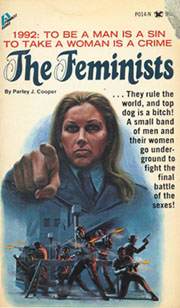 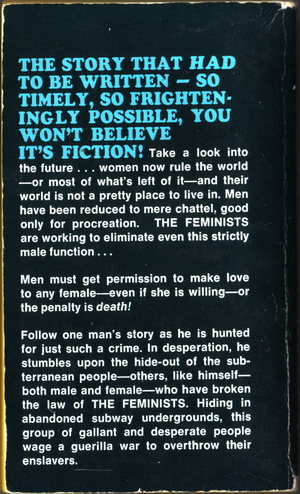
Editors note: the above content is mirrored with a few minor changes (eg. title and intoductory paragraph, content removed/added) from the website ‘Gynotopias.’ – PW |
![]() To read the rest of Joan Kelly’s essay online click here
To read the rest of Joan Kelly’s essay online click here